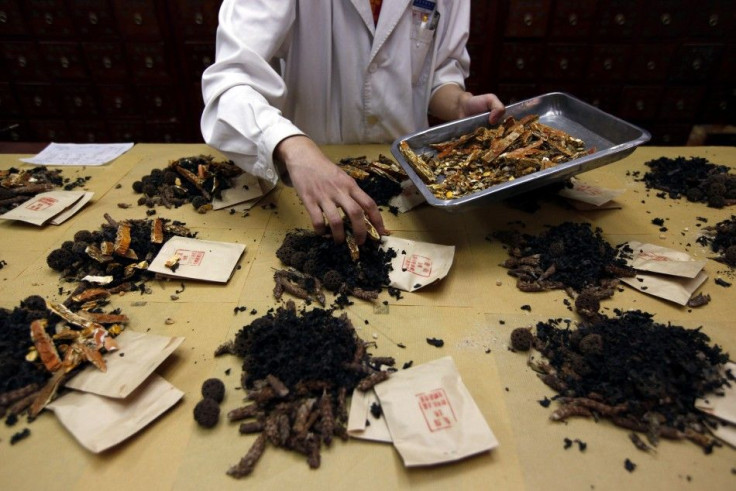Coronavirus: Don't Use Chinese Herbal Drugs To Treat COVID-19 Without Caution, Warns Study

Given the formidable mortality and morbidity rates of the coronavirus infection, it is understandable that the public depends on the emergency use of unproven drugs. But traditional Chinese herbal drugs to manage COVID-19 should be taken with caution warns a new study.
The current pandemic situation is an unprecedented challenge for the Chinese government as well as the general public. Health experts are desperately seeking a proven cure for COVID-19. When conventional treatment using drugs such as ritonavir, lopinavir, chloroquine, and hydroxychloroquine aren’t as effective as expected, screening potential active components from traditional Chinese herbal medicine is considered a viable strategy in fighting the deadly novel coronavirus.
A couple of months ago, a Chinese official announced that three patent herbal drugs were approved to be expanded to include the coronavirus symptoms. The herbal drugs included Lianhuaqingwen capsules and Jinhuaqinggan granules for mild COVID-19 symptoms and the drug Xuebijing (injectable) for severe manifestations of the disease caused by SARS-CoV-2.
The above-mentioned Chinese herbal drugs were used to treat coronavirus infections in China. While the officials claimed that they were effective in relieving COVID-19 symptoms such as fever, cough, and fatigue, there aren’t any high-quality, rigorously peer-reviewed clinical trials of these herbal remedies reported in any internationally recognized journals.
Here’s why the study warns against these Chinese herbal remedies:
- Safety is the top priority
All drugs carry some amount of risks. In the 1990s, researchers reported that some women who indulged in a slimming herbal remedy developed rapidly progressive complications. Further investigations revealed that the drug contained a compound present in these traditional herbs could have caused such adverse effects. Although these patent drugs have been used clinically for several years, safety should be cautiously evaluated when we apply them to a novel disease like COVID-19.
- More evidence to support efficacy is needed
The majority of traditional medicine practitioners are under the opinion that Chinese herbal drugs cannot be tested since they are tailored to each person’s symptoms. Standardized clinical trials might have methodological challenges and can be time-consuming. But that should not be a reason for lowering efficacy standards and the safety of these drugs.
"Thousands of years of usage and faith cannot be taken as evidence for the efficacy of traditional herbs," said the researchers in their paper published in The Lancet.
- These Chinese herbal drugs could have an obscure molecular mechanism
Although the Chinese herbal medicines that have been proven to have wide-spectrum antiviral effects and anti-inflammatory activities, their active ingredients and the underlying mechanism of action remain unknown. Since these drugs contain several active ingredients, it is very important to understand the function of each of them.
- The public has access to these drugs even without a doctor’s prescription
Believing that these herbal drugs can effectively treat COVID-19, people with flu symptoms who fear quarantine measures are more likely to self-medicate with these Chinese herbal drugs and avoid going to the hospitals. This can lead to delayed proper diagnosis and treatment while hampering the government’s contact tracing, testing, and quarantine efforts.
"In the past decades, the Chinese Government has invested huge sums of money to promote the modernization and standardization of traditional medicine, carrying out sustainable basic and clinical research to get international recognition, but the rushed approval seems to be a backward step. The attempt to develop rigorously tested drugs from traditional herbal medicine should not be given up. It is the only way to protect our vulnerable patients," concluded the researchers in their paper.
© Copyright IBTimes 2025. All rights reserved.






















